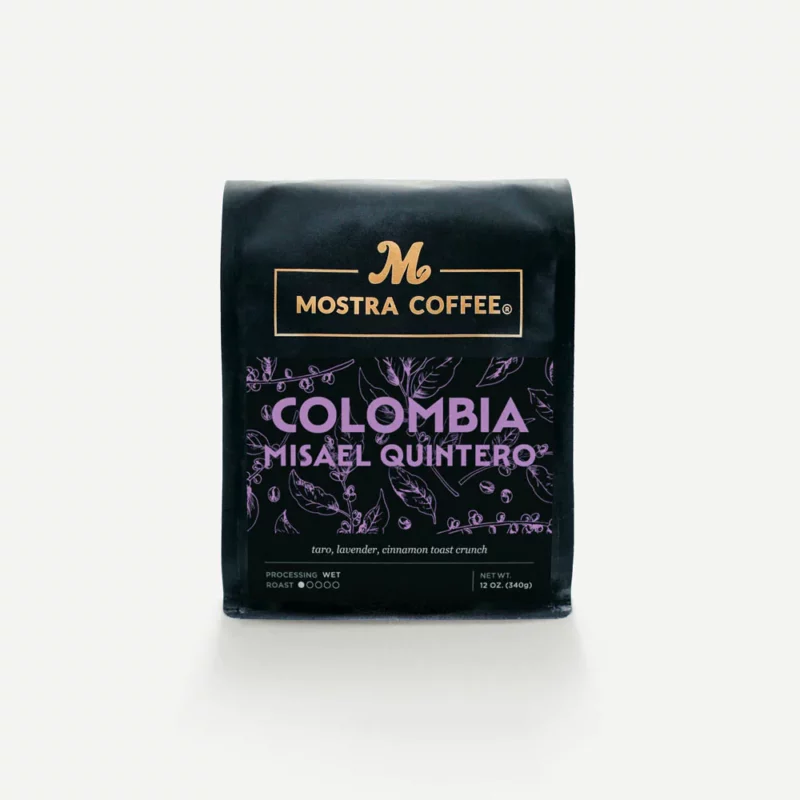
About this Coffee
Farmer Misael Quinero grows coffee at his farm Finca Las Delicias in La Plata, Huila, Colombia., and this wet/washed lot of Yellow Bourbon, Caturra, and Colombia varietals typifies the region nicely, with a little extra flair but remains a very sturdy coffee.
Here we have another example of the good works the Colombia-focused collective Cedro Alto has been able to achieve working hand-in-hand with farmers, and a great indication of what is in store for the future, with a focus on harvest selection. In years past, Karl from Cedro Alto was an extremely accessible conduit for us to give feedback to producers, including identifying an unplanned but very fortuitous variation on a drying process that the micro-regional group was able to duplicate. Like we always say, it is so much more than labels like “Direct Trade” – this coffee wouldn’t qualify as that but has more of a positive impact with the farmers than we would be able to provide as Mostra alone.
How about a little taste of Cedro Alto’s ethos in their own words…
“Coffee came to be cultivated in most of the world as a colonial cash crop, and was not designed to provide its cultivators with a stable livelihood. The colonies are mostly a thing of the past, but colonial mercantilism still characterizes certain aspects of how the sector and supply chain are organized, as well as how many industry actors, from consumers to producers themselves, view the relationships and dynamics that make up the chain.
We at Cedro Alto believe that one of these aspects common in the specialty end of the coffee spectrum is the presence of traceability and transparency information about producers, shared with roasters and consumers. We aim to legitimately give producers a voice in this industry and the ability to determine their own position, future, and career and believe that one low-hanging fruit is to simply share traceability and transparency information going the other direction, about what happened with their coffee, how it performed, how it was purchased, and discuss it like adults.
The two of us at the Cedro Alto office work for producers who choose to work with us. Just like I used to have to deliver periodic reports to clients when I was a consultant for them to decide whether to continue retaining my services, coffee farmers that work with us should receive the same service and accountability and have the information needed to gauge our efficiency and performance at getting their coffee sold and getting them paid as much as the market will allow. Yes, it takes time, and therefore has a cost. Yes, it sometimes creates more questions than answers and can be uncomfortable and open us up to criticism that we could have avoided. That doesn’t make it any less important.”